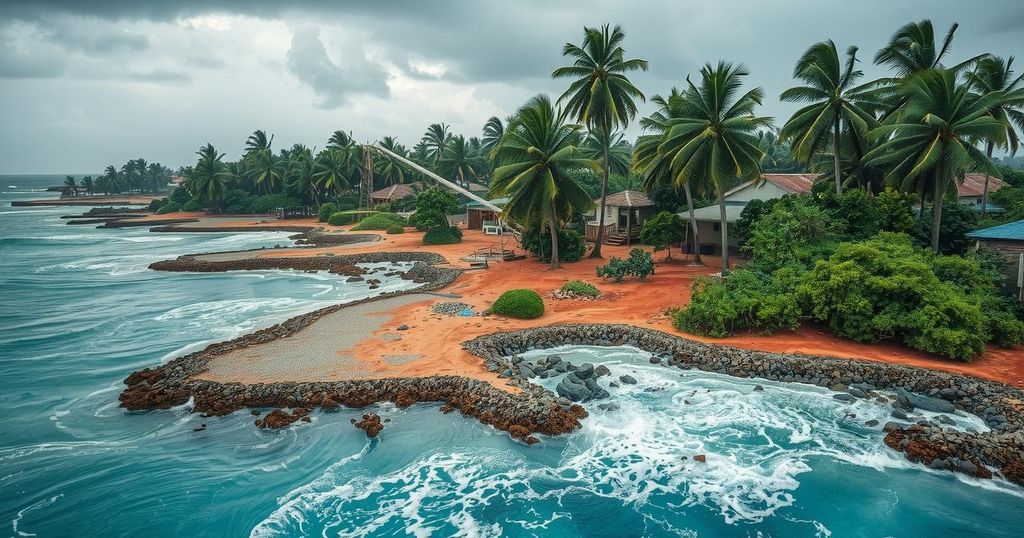Emergency Response to Tropical Cyclone Chido in Mozambique

Tropical Cyclone Chido made landfall in Mozambique on December 15, 2024, posing significant risks to around 2 million people. Emergency preparations have included early warning systems, voluntary evacuations, and swift food assistance from the WFP. Key areas of concern include Cabo Delgado and Nampula provinces, with ongoing assessments planned to evaluate the cyclone’s impact on affected districts.
On December 15, 2024, Tropical Cyclone Chido struck the district of Mecufi in Cabo Delgado province, exacerbating the already dire situation facing the region. Approximately 2 million individuals have been categorized as at risk, with 627,000 labeled as being in high risk and an additional 1.4 million at moderate risk. Government meteorological services have raised alarms about potential damages to critical infrastructure, including river basins, roads, and healthcare facilities, which underscores the immediacy of preparedness and response measures.
The districts of Mecufi, Chiure, Metuge, Pemba, Namuno, Montepuez, and Ancuabe in Cabo Delgado, along with Memba, Nacaroa, and Erati in Nampula province, are currently facing the highest risks. In light of the cyclone’s impending threat, early warning messages and voluntary evacuation instructions have been disseminated, reaching over 400,000 individuals in the affected areas as part of the Anticipatory Action Plan initiated on December 8 in Nampula and December 12 in Pemba.
Within a day of the cyclone’s landfall, the World Food Programme (WFP) efficiently provided emergency food assistance to about 500 families located in temporary accommodation centers in Pemba. Likewise, in Mogincual, Nampula, food support was administered in temporary shelters, coordinated by INGD with the assistance of WFP. Comprehensive multi-sectoral assessments are slated for the Mecufi and Chiure districts to evaluate further impacts and guide response strategies.
The humanitarian situation in Mozambique is increasingly precarious due to recurrent natural disasters, such as tropical cyclones. These events not only threaten lives but also devastate vital infrastructure, leading to widespread displacement and food insecurity. The present cyclone, Chido, poses a significant risk to millions in Mozambique, particularly in areas that have already faced challenges due to previous disasters. The government’s proactive measures, alongside the efforts of organizations like WFP, aim to mitigate the impact and provide essential services to those affected.
In summary, Tropical Cyclone Chido has posed a serious threat to millions of individuals in Mozambique, prompting urgent responses to ensure safety and provide relief. With significant portions of the population at high and moderate risk, the collaboration between governmental agencies and humanitarian organizations like the WFP is crucial for effective disaster management and aid distribution. Continued monitoring and assessment are necessary to ensure that the needs of the affected communities are met promptly and efficiently.
Original Source: reliefweb.int







